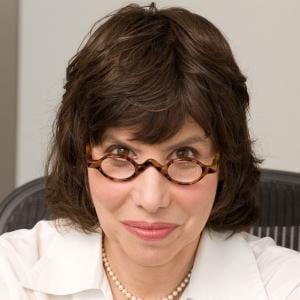“The thing that’s so satisfying about working with kids is that they’re constantly surprising you…[their] capacities are just amazingly more sophisticated than we would have thought…”
 An interview with Alison Gopnik, PhD
An interview with Alison Gopnik, PhD
Professor of Psychology, UC Berkeley
By: Michelle Johnson (10/30/20)
Were you always interested in psychology and studying children?
I started out my career, not in psychology, but in philosophy. Although I thought that I was going to become a philosopher, I wanted to be a philosopher who did something unusual, which was thinking about children because I thought children could answer some of these big questions. In fact, the question I was always the most interested in is what I call the “problem of knowledge.” How is it that we can understand as much as we do about the world around us? All we get from the world is a stream of photons hitting our retinas and little disturbances of air in our ears, and yet we understand about objects and people and eventually about quarks and the moon and far away things. It always seemed to me that children were the right place to go if you wanted to answer that question because they were the ones who were doing most of this early learning.
What I’ve been doing for 15 or 20 years is also a big question for artificial intelligence. I think this [is a] philosophical question, going back to Plato—how could any system learn about the world? My question is how could we design a computer that can learn about the world? Then the developmental question: how do children, who do a better job of this than anyone else, do it? I think all three of these are the same question, and that’s what I’ve spent my career trying to answer.
What questions are driving your research within that larger question?
My work has had three phases; the first set of ideas was about what I call the “theory theory,” the idea that children are doing what scientists are doing: going out into the world making abstract theories and testing hypotheses. Then a second piece was [what is now known as] “theory of mind.” How is it that children are developing this everyday psychology about other people? What do children think about free will, personality traits, or social groups like race or gender?
In the mid-90s, I started [studying] whether children could figure out the causal structure of the world based on statistics and data. Then I spent another 10 years showing that, much my surprise, the kids were just amazingly sophisticated and good at doing this—you could show them a really complicated set of data and they would pick out the right causal structure.
What has surprised you in doing this kind of research?
The thing that’s so satisfying about working with kids is that they’re constantly surprising you. The first thing you do never works because the kids are doing something unexpected that you wouldn’t have thought about in the first place. Kids’ capacities are just amazingly more sophisticated than we would have thought, and the ideas they come up with are much weirder than we would have thought. They’re developing theories, but they are often quite different from the theories that we would have as grown-ups.
What advice would you give to students or early career researchers?
When I did my PhD, which was probably 40 years ago, the attitude was that students should just go and do what we thought was the most interesting thing to do as opposed to thinking, I’m in someone’s lab, I have to do the things that are part of the lab, do a study on the PI’s grant and get results to get five publications or 10 publications. I think it would be good if we kind of moved in the direction of that earlier attitude. I think students often feel as if there’s a hidden agenda or a bunch of instructions that we faculty all know about but just won’t tell the students, and that really isn’t true. It really is true that finding something that’s new and different is the best option.
I was also an editor for the journal, Child Development, and as a journal editor, you realize there’s this beautiful meadow of possible things you could find out about yet there’s maybe three really heavily trodden paths through that meadow. There are a million interesting things that nobody studies, because nobody yet has a technique for studying them. Even though sometimes it can be frustrating to try and do that, there is value both in terms of your own life and in terms of your place in the field as a result.
Is there anything else you would like people do know about your work?
Developmental psychology is an interesting case because it’s been associated with women, and a lot of the people who’ve been doing the work have been women. As a result, it’s been sort of downplayed compared to other branches of psychology. One thing I hope I’ve done with my career is make the point that something that is seen as being traditionally female, doing work with children, is just as illuminating, maybe more illuminating, and tells you the same sort of things as philosophy or AI. That’s been my overarching sense of what my vocation and career was about, and sometimes I feel like I’ve succeeded, still not quite as much as I might want, but I do think its been worth trying to change those attitudes.
To learn more about Dr. Gopnik and her work, click here.
Click here to go back to the “Interviews with Scientists” page.
